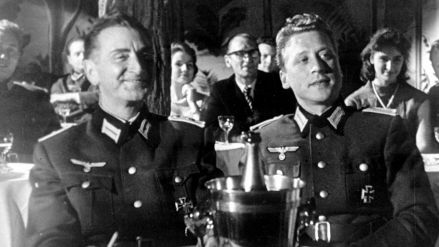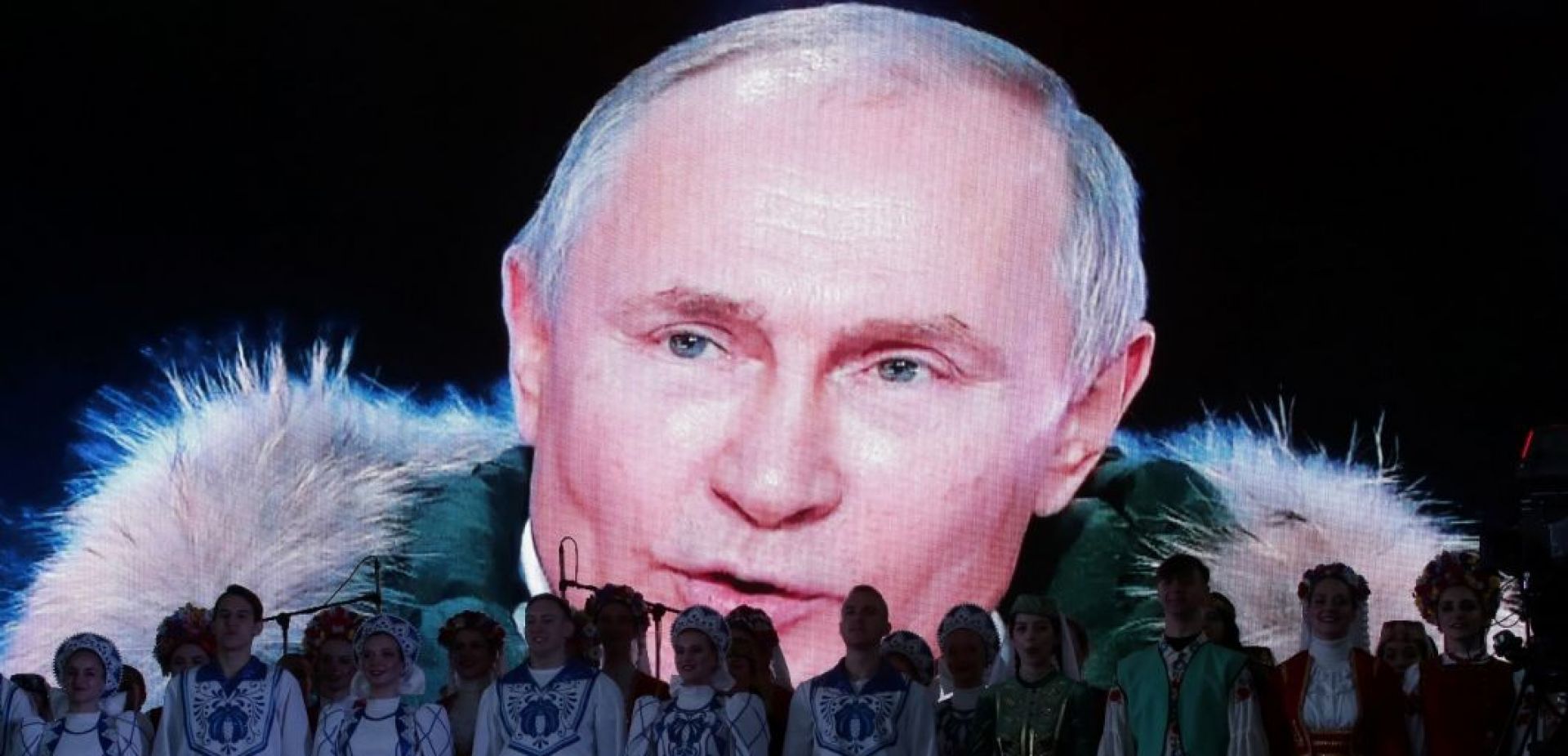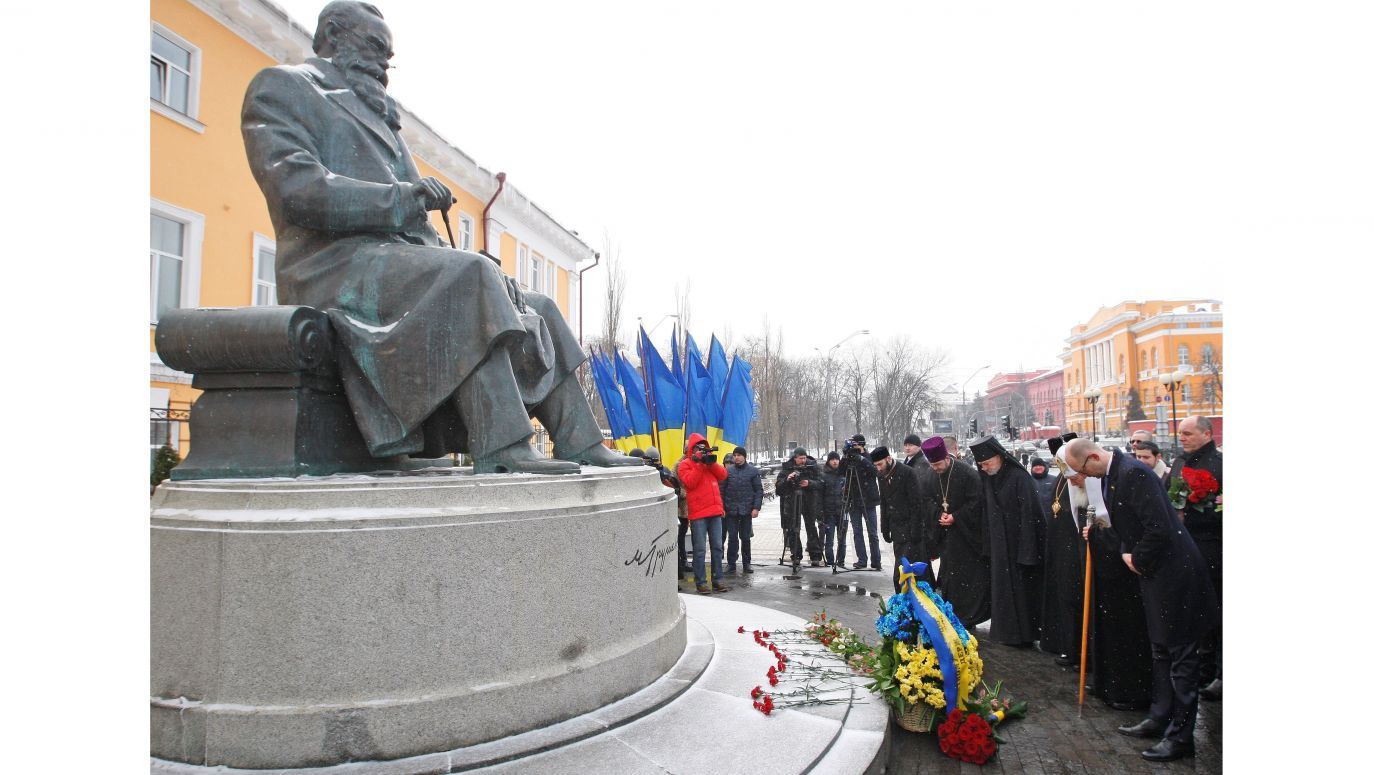Did the USSR favor Ukrainians at the expense of Russians? Putin thinks so
08.03.2022
The lord of the Kremlin declares that the Soviet aggression on the eastern lands of the Second Polish Republic in 1939 was justified. He believes that these areas were seized by Poland and thanks to the Red Army they returned to their rightful owners.
Vladimir Putin is continuously convincing his countrymen that they should be proud of the Soviet Union. While last week, the lord of the Kremlin, who – as we know – is a former KGB officer, published a text in which he proposed the thesis that communism harmed Russia.
It is no accident that this material appeared in two language versions: Russian and Ukrainian. The title itself is meaningful: “On the Historical Unity of Russians and Ukrainians.” The known narrative about three “brotherly” nations originating from Kievan Rus runs through many fragments. It refers to the Velikorussians (Russians), Belarussians and Malorussians (Ukrainians).
The goal of such measures by Putin is obvious. Since 2014, Ukrainians have been brutally convinced that Russia is their enemy. Every so often, military operations in the Donbas escalate. In connection with this, Putin is again attempting to make the Ukrainians believe that they allowed themselves to be sucked into a “fratricidal” conflict, which – as sometimes happened throughout the course of history – was fomented by western countries, and their outpost is Poland.
Why then does the text of the president of Russia deserve attention? Because in it the author takes up the issue of Russian-Ukrainian relations in the Soviet era in a way that can be somewhat surprising to Polish readers, also, as it concerns the viewpoint of this politician on communism.
Putin suggests that in the 1920s and at the beginning of the 1930s, the Bolsheviks carried out the “localization policy” in the Soviet Union. It concerned the favoring of local ethnic identities in order to overcome “Russian great-power chauvinism” inherited from the imperial era. An example could be the activities undertaken in the Ukrainian Soviet Socialist Republic. Russians living there were Ukrainized.
Grushevskiy’s return
In the opinion of the president of Russia, the arrival of the Ukrainian historian Mikhail Grushevskiy to the Soviet Union in 1924 from forced exile is symbolic. He was a Ukrainian nationalist ideologue, and in the First World War period he enjoyed the support of Austria-Hungary and Germany. In the USSR he became a member of the Academy of Sciences. It is futile though to find in Putin’s text any mention that at the beginning of the 1930s, Grushevskiy was repressed and it cannot be ruled out that he only avoided being murdered at the hands of the Bolsheviks because he died in 1934.
On the margins it can be noted Stanisław Cat-Mackiewicz criticized the “localization” policy in Ukraine in his book Thought in Pincers in 1931. In this report on the author’s stay in the Soviet Union, among other things, we read: “Kiev is frankly a Russian city. I walked the streets there for two days, I listened, not once did I hear any Ukrainian spoken… While several Ukrainian writers were easily assembled for me. I have the impression that with Ukrainians in Kiev it’s like with Lithuanians in Vilnius – if someone really wants to, they can always gather several of them in one room, but to hear Ukrainian on the street in Kiev is almost as difficult as hearing Lithuanian in Vilnius!”
Returning to the president of Russia’s text – Putin bluntly declares that the Soviet aggression on the eastern lands of the Second Polish Republic in 1939 was wholly justified. Since he believes that Poland carved out these areas and thanks to the Red Army marching in, they returned to their rightful owners – including Ukrainians. Then the president of Russia lists the successive moves by the Kremlin resulting in the expansion of the USSR’s territory. At the end of this list is the transfer of Crimea in 1954 to the Ukrainian Soviet Socialist Republic (UkSSR), which took place – as Putin maintains – “in gross violation of legal norms that were in force at the time.”
The double standards of the lord of the Kremlin are glaring here. When the Soviet occupation of the eastern lands of the Second Polish Republic needs to be justified, the Russian politician does not submit any legal objections to it and interprets it as something legitimate – the concern of the USSR for Ukrainian interests. On the subject of the annexation of Crimea by Russia in 2014 however, Putin states that the attachment of this Black Sea peninsula to the UkSSR by the Soviet authorities 60 years earlier was illegal.
Is there a chance for common ground?
The revisionist slights by the leader of Russia against interwar Poland’s nationhood is nothing new. It should give all of the people in Poland with the naïve belief that common Polish-Russian ground in the area of historical policy can be found, something to think about. While we also have to think about what Putin’s real attitude towards Soviet communism is.
According to the president of Russia, the Ukrainian state created in 1991 owes its borders to people condemned by the current political establishment in Kiev. It is worth citing the following quote from the text by the lord of the Kremlin: “The Bolsheviks treated the Russian people as inexhaustible material for their social experiments. They dreamt of a world revolution that would wipe out national states. That is why they were so generous in drawing borders and bestowing territorial gifts. It is no longer important what exactly the idea of the Bolshevik leaders who were chopping the country into pieces was. We can disagree about minor details, background and logics behind certain decisions. One fact is crystal clear: Russia was robbed, indeed.”
It is very characteristic that Putin, in wanting to delegitimize the borders of the Ukrainian state, poses as a Russian patriot appearing in opposition to Soviet multi-culturalism, in other words, social engineering under the slogan “friendship among nations.” In the opinion of the lord of the Kremlin, this is the rejection of that which could genuinely unite Russians, Belarusians, and Ukrainians. Incidentally, this brings to mind the term coined by American historian Terry Martin, “The Affirmative Action Empire.” He used this concept in reference to the Soviet Union in the period of “localization.”

Hundreds of millions of bottles streamed into Germany. Many wineries made fortunes.
see more
The entire matter is made even more interesting in that the term “affirmative action” comes from the United States of course. This name is given to initiatives undertaken in America in the 1960s. It refers to government equal opportunity programs for African-Americans in education and the professions. Applying racial equality before the law was meant to counteract all sorts of discrimination. Although “affirmative action” was a government policy, today – when it comes to its ideological aspect – it can be associated with the activities of such radical organizations like Black Lives Matter.
Counterproductive Great Famine
When it comes to the president of Russia, however, he realizes that since 2014, Kiev’s political elites are shaping Ukrainian national identity upon the memory of the traumatic experiences from the Soviet era – like the Great Famine. So, since Putin wants to reach Ukrainians with his message, he must demonstrate both anti-communism and anti-Sovietism.
The hitch is that in his text, the lord of Kremlin addresses the residents of Ukraine from a position of superiority. In fact, he is attempting to prove to them that they are the poor kinsmen of Russians, who they should be grateful to for what they have. It is a policy of twisting things around, not seeking understanding.
As a Soviet republic, Ukraine was formally a subject, but this was not the reality. The Soviet authorities long assumed that the USSR would last forever. All gifts from Moscow to Kiev were mainly for their propaganda value. So the “localization” policy must also be considered in this context. So, the “wisdom of the stage” induced the Kremlin to abandon this “affirmative action” and – in the course of battling against “nationalisms” – taking up Russification operations.
Of course, the former KGB officer who is the president of Russia, despite the lingering stereotype in certain circles in Poland, is not a communist. Though posing as a Russian patriot he defends the Soviet Union as far as it serves to whitewash Russia on the international arena. Still, it cannot be denied that it was in Ukraine that statues of Lenin were thrown off their pedestals. In Moscow in the meantime, the mausoleum of the leader of the Bolshevik revolution still threatens.
– Filip Memches
– translated by Mikołaj Siekierski







